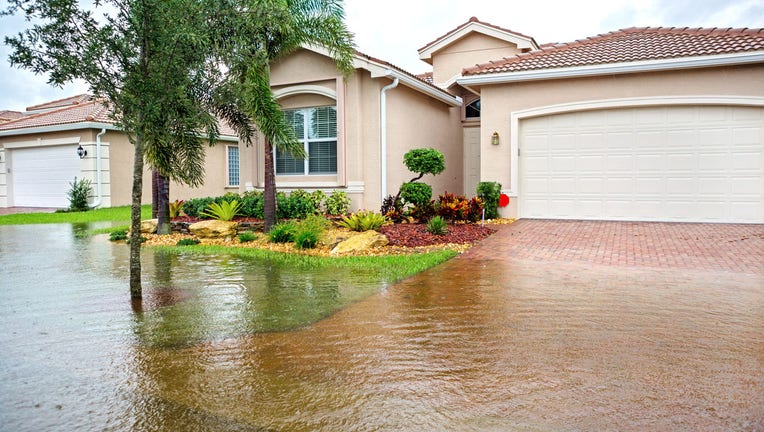How to decide if you need flood insurance for your home

Do you own or rent a home in an area with elevated flood risk? Here's how to decide if you need to take out a separate flood policy. (iStock)
Flooding can lead to devastating and expensive damage to your home, and a standard home insurance policy doesn't typically cover flood damage.
Often, homeowners may not realize that their policy doesn't have flood coverage until it's too late. Only 1 in 4 homeowners has flood insurance, according to a 2020 consumer survey from the Insurance Information Institute (III).
Federal law requires borrowers with government-backed mortgages to enroll in the National Flood Insurance Program (NFIP) if they live in a designated flood zone. Even if you don't have a government-backed mortgage, your lender may require you to take out a flood insurance policy if you live in a high-risk area that's frequently impacted by natural disasters.
And even if you live in a low-risk area, you might still consider getting flood insurance since more than 40% of NFIP flood insurance claims between 2014 and 2018 occurred outside of high-risk flood areas.
Keep reading to learn more about flood insurance, and visit Credible to compare homeowners insurance policies from multiple companies in one place for free.
Do you need flood insurance for your home?
Congress created the NFIP in 1968, and the program has since been administered through Federal Emergency Management Agency (FEMA) and private insurers. When disaster strikes, such as during Hurricane Katrina in 2005 and Hurricane Harvey in 2017, the NFIP administers billions of dollars worth of insurance payouts to impacted policyholders, FEMA reports.
The decision to purchase flood insurance is a lot like buying any other type of insurance. You weigh the cost of the monthly premium against the risk that you'll need to use your insurance. But since flooding is typically coupled with unpredictable natural disasters, it's difficult to effectively gauge your risk.
On the other hand, flood insurance premiums are a relatively small price to pay considering the high cost of water damage repairs such as mold remediation, new plumbing and carpeting replacement. FEMA estimates that just one inch of floodwater can cause $25,000 worth of damage.
Policygenius estimates that flood insurance costs $738 per year, but notes that the premium you ultimately pay will depend on the location and size of your home, as well as your coverage amount. Do your research among NFIP and private flood insurance policies to decide if this type of insurance is worth the cost.
If you're in the market for a new homeowners insurance policy, visit Credible to get free quotes and compare your options.
LOOKING FOR A LIFE INSURANCE AGENT? HOW TO CHOOSE THE RIGHT ONE
Top 10 cities at risk of damage from storm surges
Coastal cities in the South are naturally more susceptible to flood damage due to the frequency of hurricanes, but they're not the only areas that are impacted by flooding. According to the III, residential structures in many of the country's largest metropolitan areas may be susceptible to storm surges, which occur when ocean water is pushed ahead of a storm to cause flooding.
Even if you're not required to have flood insurance, you might want to consider purchasing a policy if you live in one of these areas:
- New York
- Miami
- Tampa, Fla.
- New Orleans
- Virginia Beach, Va.
- Fort Myers, Fla.
- Bradenton, Fla.
- Houston, Texas
- Jacksonville, Fla.
- Naples, Fla.
Get in touch with a financial professional at Credible to decide if you need to purchase flood insurance and to compare premiums for home insurance policies across private insurance companies.
HEAT WAVE RELIEF: HOW TO PAY FOR NEW AIR CONDITIONERS
Have a finance-related question, but don't know who to ask? Email The Credible Money Expert at moneyexpert@credible.com and your question might be answered by Credible in our Money Expert column.

